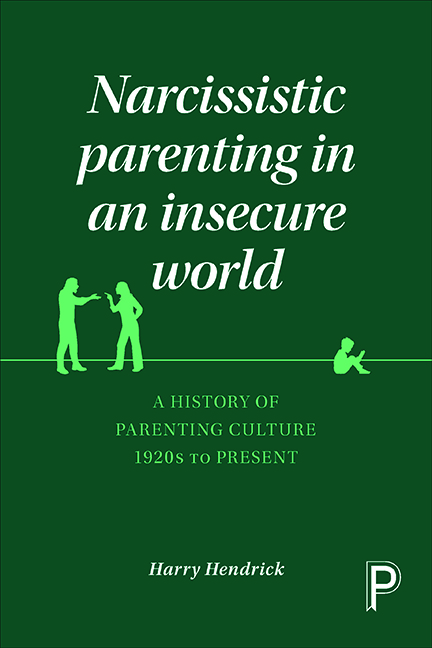Book contents
- Frontmatter
- Dedication
- Contents
- About the author
- Acknowledgements
- Introduction
- Part One The origins of social democracy’s family ideal: 1920s–1940s
- Part Two Characteristics of the ‘Golden Age’: 1940s–early 1970s
- Part Three Influences and examples from the USA
- Part Four Parental narcissism in neoliberal times: 1970s to the present
- Part Five Therapeutic reflections
- Index
three - Rebuilding the family: 1940s–1950s
Published online by Cambridge University Press: 05 April 2022
- Frontmatter
- Dedication
- Contents
- About the author
- Acknowledgements
- Introduction
- Part One The origins of social democracy’s family ideal: 1920s–1940s
- Part Two Characteristics of the ‘Golden Age’: 1940s–early 1970s
- Part Three Influences and examples from the USA
- Part Four Parental narcissism in neoliberal times: 1970s to the present
- Part Five Therapeutic reflections
- Index
Summary
‘Subjectivity is neither a transcendent essence nor is it formed in a culturally neutral, ahistorical and social vacuum but is the product of specific cultural articulations and the material experiences of day-to-day existence.’
‘To make men and women better than they are’ (Herbert Morrison)
With the Labour election victory in 1945, many socialists looked to improve human nature, even to create citizens for the anticipated Socialist Commonwealth that was said to be in the not too distant future – Michael Young, Director of the Labour Research Bureau, thought it would probably be 1960 before it arrived. These socialist aspirations represent important themes here since parenting, in being as much a political as a socio-cultural enterprise, is inevitably bound up with their processes and outcomes. The interest in rebuilding family life after the war was by no means confined to those on the Left, for many liberals and conservatives also thought of it in terms of social democratic politics. For socialists, however, this meant Socialism as they hoped it was being made under the Labour government (1945–51). A key element in this Left thinking, sympathetically viewed by those liberals who had retained their faith in Progress throughout the interwar crises, was that in different ways, people ‘could be made better than they are’: through Christian ethics, the giving and receiving of love, the habit of reason and, for those who consciously referenced psychoanalytic principles, also through non-authoritarian child rearing and schooling. For the intellectual Left–Liberal alliance, the idea of mental progress, liberal parenting, sound mental health and a comprehensive and universal welfare state were each linked to helping people to rally their potential which, it was assumed, would help to sustain the principles and practice of social democracy during the cold war era of the 1950s. How widespread this view was is a matter of debate. Its significance, however, lay in the fact that it existed and that it could not be ignored; it was present as a reminder of what could and might be. In this sense, the cultural importance of Bowlby and Winnicott, and their followers, lay in their ability to link psychoanalytic ideas signifying humanistic imperatives of mothering to a social and political programme for the re-envisioning of democracy; under their guidance, the hitherto inexpressible became effable in a galaxy of tropes that unforgettably naturalised maternal ‘attachment’ as a basic human need.
- Type
- Chapter
- Information
- Narcissistic Parenting in an Insecure WorldA History of Parenting Culture 1920s to Present, pp. 89 - 128Publisher: Bristol University PressPrint publication year: 2016



